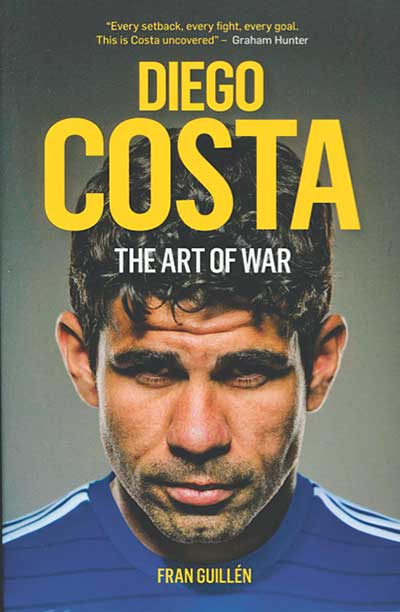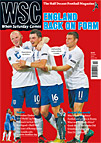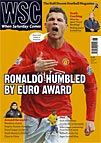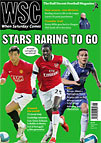 The art of war
The art of war
by Fran Guillen
Arena Books, £9.99
Reviewed by Dermot Corrigan
From WSC 344 October 2015
Buy this book
The worst thing about this new biography of Diego Costa is the subtitle, and the faux-inspirational Sun Tzu quotes which start each chapter, giving the immediate and unfortunate feel of a popular business bestseller.
This packaging, also a feature of the original Spanish book published in 2014, is a pity. Because beneath the guff about the “warrior centre-forward” and the “what happens on the pitch stays on the pitch” posturing, this unauthorised but very well researched biography does a very good job of explaining how Costa nearly never made it only to burst onto the scene almost fully formed as a world-class centre-forward at the age of 23.
Portuguese super-agent Jorge Mendes enters the story early – apparently as he personally noticed the 16-year-old playing (and getting sent off) in a youth tournament in Brazil. Former Atlético Madrid sporting director Jesús García Pitarch then appears with some entertainingly open talk about how the relationship between Mendes and Atlético worked in those days, and also what he calls the “smoke and mirrors” aspect of the deals that get done.
The travails of Costa’s early career are also well described – especially the seasons on loan at Celta Vigo, Real Valladolid and Albacete – where a teenage Costa is apparently amazed to see snow for the first time. He and his team-mates enjoy late night poker games, watch pornographic movies in hotel rooms and get into rows at motor service stations. The many former team-mates and coaches who spoke to Guillen, a well-connected Marca reporter, all seemed to have been equally impressed by Costa’s ability to both score goals and get
into scrapes.
Through these years nobody seems to have tried too hard to put into place a structure that would help the “overgrown kid” to grow up and reach his potential. At various times Mendes and Atlético tried to sell him (to Besiktas and Real Betis) in cut-price deals which fell through at the last minute. Even Diego Simeone didn’t really rate the still raw 23-year-old when they started working together in summer 2012.
A matter of months later, Costa was maybe the best centre-forward in the world, the key player as Atlético became a better team than both Real Madrid and Barcelona. His own less than convincing explanation of the transformation is that “something just clicked”. Pitarch reckons the late development was mostly down to “bad luck”, but haphazard career management by his elders seems more
to blame.
Guillen’s telling of Costa’s more recent story, with Atlético’s successes, his switch to represent Spain at the World Cup in 2014, and his first year Chelsea, will hold few surprises for readers who follow the game day to day. You do notice, however, how even all Costa’s most recent coaches – Simeone, Vicente del Bosque and José Mourinho – have put short-term gains ahead of his long-term fitness. Even now, nobody within the game really cares what’s best for Costa himself.
Buy this book
 The art of war
The art of war

